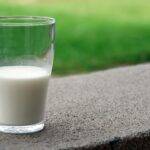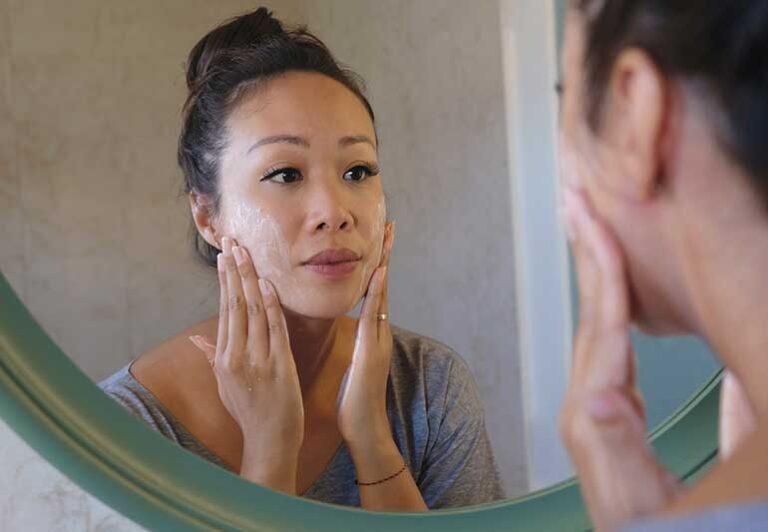Teeth grinding, also known as bruxism, is a condition that affects many people.
More often than not, this is an unconscious action as the majority of sufferers do this in their sleep. The only way a person becomes aware of nighttime teeth grinding is through the ongoing damage to their teeth, and sometimes the frustration of the partner sleeping beside them.
Some may dismiss the problem, wondering how much damage they can really do if they are asleep.
The problem is that recurring grinding places a lot of pressure on the jaw, teeth, and surrounding areas. Long term effects include pain and damage to the teeth and jaw. The pain may even spread to the ears and head.
Stress is the leading causes of teeth grinding.
How can we lower stress in the body?
Take a deep breath and exhale. Actually do that 6 times. Six deep breaths is the minimum number to take in order to feel the effects of stress relief via breathing. So, take 6 deep inhales and exhales to start calming yourself when stressed.
This is a natural cure for grinding teeth
When we can decrease our stress levels, amazing things start to happen for us. Inflammation, gut issues, headaches, mood, chest pain, jaw pain and much more can be relieved through learning to keep ourselves in a state of calm.
More drugs is not the solution to curing bruxism.
There is no quick fix medication to solve this problem. You can certainly take an Ibuprofen for some relief if you’re feeling the effects of teeth grinding the next morning. But this only provides temporary relief. Taking drugs to make yourself sleep more deeply will not cure bruxism. The bruxing action will occur regardless of whether you took sleep aids or not.
Make it a priority to stop teeth grinding.
In time, the subsequent jaw and tooth issues could lead to medical conditions and expensive dentistry. Thankfully, there are some great natural solutions to tooth grinding that can help.
Wear a dental night guard
Every day, thousands of dentists regularly encounter patients with headaches, orofacial pain and signs of teeth wear.
A custom mouth guard is the best immediate protection for preventing further wear and relieving pain symptoms. This mouth guard for sleeping (also known as a dental night guard) is made from a mold of your teeth – unsurprisingly the fit is much better and more comfortable than a generic nightguard from the supermarket. Additionally, it lasts much longer.
4 years is the average lifespan of a custom made night guard.
Relax your muscles
A great way to reduce the intensity of bruxism is to relax the muscles in the jaw before sleep.
The less tension that we carry in this area, the less likely it is that we clench our jaw and grind our teeth. A relaxed face and neck allows the whole area to rest, minimizing any risk and further complications down the line. There are different ways to do this, which include the following:
1) Relaxation/massage techniques
2) Nightly exercises
3) Warm compresses
4) Essential oils
Relaxation techniques
Meditation and other relaxation techniques can help us retrain the muscles in this area.
There are a number of techniques to use before bed to reduce the chances of tooth grinding.
A simple body scan lets us travel the length of the body, paying attention to tension in key areas. Those that are new to the approach will benefit from guided practice. You will note that many of these sessions do focus on the jaw. Guided sessions are available in many free apps, so cost isn’t an issue here.
We hold stress and tension in our jaw and teeth. When irritated, masseter muscle knots can cause a plethora of issues. You can self massage your jaw to achieve a conscious relaxation.
The idea of exercise for relaxation can seem counterproductive to some newcomers.
Yet, a nightly session of yoga can free up the mind and help channel energy in the right direction.
This exercise doesn’t need to be strenuous. You are not there to work up a sweat. Practitioners can feel rejuvenated and more at peace after just 20 minutes of gentle stretches and poses.
This helps relax the muscles, including areas of tension in the face.
Warm compresses
A gentle, warming heat around the jaw is a great way to relax muscles and lower the risk of grinding teeth.
Simply soak a wash cloth in hot water, wring it out and apply it to the jaw for while. Some find that it also helps to do this during the day to help maintain a relaxed state.
Essential oils
A bath before bed. This is something that comes up time and time again in guides to natural remedies and relaxation – and for good reasons!
A warm bath before bed is the perfect way to bring two of the points above together. The warm water helps relax muscles, including those around the jaw as well.
Sink back in the water and inhale the scents from luxuries toiletries or those essential oils. You could even stretch out your muscles in the water with a little hydrotherapy exercise.
Other natural bruxism cures
Natural ingredients, like those found in essential oils, are a great choice for those that want a simple, drug-free approach to combating teeth grinding.
However, some of these massages and compresses can seem a little time-consuming or awkward for some. Many people are looking for something much faster as a solution. This is where some drinks and supplements can help.
What are you drinking before bed?
Any drink with caffeine or other stimulants is a bad idea before bed.
Ideally, you want a soothing, calming drink that will help you relax and maybe even contribute to your oral health.
Hot milk is something that many people swear by for a better nights’ sleep. A nice warm mug, with a little added turmeric, could help to relax the jaw and add some extra calcium for dental health. Those that are put off by the idea of yellow milk may prefer the simple alternative of herbal teas, like green or chamomile. A little honey can sweeten the taste too.
Magnesium and Calcium
Finally, those that really want a quick, hassle-free approach can turn to supplements. This option is great for those without the time for a long bath, or the taste for herbal tea.
A common recipe is to add 2 parts calcium 1 part magnesium to a glass of orange juice. This daily concoction promotes the relaxation of muscles across the body. The vitamin C in the juice also helps with stress reduction.
The only downsides are that it doesn’t have the same soothing effect as a bedtime drink, and some stomachs are a little sensitive to magnesium
More Alternatives:
Prepare chamomile tea by boiling 2 tsp. of chamomile flower powder in water. Filter it and keep aside for 5 minutes. Add 1 tsp. of lemon juice and another of honey. Mix well. Drink 1-2 hours before bedtime.
Understanding Bruxism
Let’s take a look at the masticatory anatomy to understand what is being affected.
TMJ stands for Temporomandibular Joint. TMD can happen as a result of inflammation of the joint, deterioration, muscle or nerve injury, or jaw misalignment.
When you open your mouth wide, the joint that allows that action to happen is called the temporomandibular joint. On average, it opens and closes as much as 10,000 times a day!
Masticatory Muscles: 4 Muscles of Mastication
Masseter – The masseter muscle is powerful. Shaped in a quadrangular fashion, it is split into two parts; deep and superficial.
Temporalis (Temporal Muscle) – Want more power? The master muscle is not as powerful as the temporal muscle; a broad, fan shaped muscle on each side of the head.
Medial Pterygoid – Can be called a “wing” muscle. This muscle forms a sling around the mandible. It serves the movement of the Temperomandibular Joint. The contraction of the medial pterygoid elevates the mandible, causing jaw closure & jaw protrusion.
Lateral Pterygoid – a.k.a. the other “wing” muscle. It has a superior head which is tiny and located at the top of the muscle. What’s unique about this muscle? It is the only one of the 4 muscles that can open the jaw. Bilateral activation causes protrusion. Unilateral contraction causes laterotrusion.
Finding a natural cure for teeth grinding
The suggestions mentioned in this article are ideal for relaxing the muscles and calming the jaw. However, this may be just the start of the solution. If you’re battling bruxism, your dentist can look into deeper reasons such as misalignment of the jaw, TMJ disorder, and sleep apnea.
Why are you carrying stress and tension in your jaw? Why is it so difficult to relax this area at night? A combination of mental and physical process should be combined to provide the outcome you need.
Find the method that works for you, enjoy a more restful sleep and help protect your teeth and jaw.
Take time to care for yourself and be proactive about taking measures to relax during the day and before bed.
If left with no treatment, chronic teeth grinding and jaw clenching can lead to a world of expensive dental problems down the road. Dental repairs and restorative work can cost thousands of dollars.
The most effective way to prevent these damages is to wear a custom dental night guard.
We wish you all the best – and if you found this article useful please let us know in the comments section below!
This content was originally published here.




















